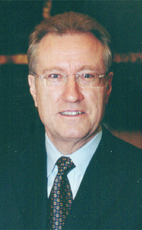Mr. Speaker, I wish to update the House on the Canadian Forces' most recent contribution to the international campaign against terrorism.
Since September 11 Canada has provided important military support to the U.S. led coalition. We have known from the beginning that the overall campaign would be long and multidimensional, not just military. Our commitment to it has been firm and unshakeable.
Six weeks ago I announced the first of our contributions to the military effort aimed at eliminating the continuing terrorist threat posed by the al-Qaeda organization and its supporters and followers, including the Taliban. In doing so, Canada is acting within and with the support of the United Nations charter.
Article 51 of the charter preserves the inherent right of individual and collective self-defence. Security council resolutions 1368 and 1373 have expressly reaffirmed this right in the context of the tragic events of September 11. Canada has informed the security council that our international military response to terrorism is to collectively exercise the right of self-defence with our allies against the Taliban and the al-Qaeda, but we are also mindful that one of the objectives of the coalition is to assist with the humanitarian needs of the Afghani people.
In recent weeks, the situation in Afghanistan has evolved very quickly, and it remains fluid and unpredictable.
The Afghan people have suffered the effects of war for many years. Since 1997 they have suffered further under a stifling and repressive regime. They should suffer no longer.
As the Prime Minister has stated, all members of the coalition of nations have a responsibility to “provide a safe and secure environment for the Afghan people as soon as possible”. We are now taking action to fulfill our part of the commitment.
Our proposed contribution to the international coalition will include the 1,000 strong Immediate Reaction Force which comprises members of the 3rd Battalion, Princess Patricia's Canadian Light Infantry from Edmonton and a company of the 2nd Battalion of the PPCLI from Winnipeg. They are on a 48 hour notice to deploy.
This battalion consists of three infantry rifle companies, one engineer squadron, a headquarters, a combat support company of heavy weapons and an administrative company.
Current plans would have our ground forces working side by side with our coalition partners. Acting as a stabilization force in Afghanistan they would help create conditions that would allow humanitarian assistance to be delivered to the people of that country. Their role in securing entry points and corridors for the delivery of humanitarian aid by the United Nations and NGO organizations could be critical.
Our forces are ready and able to help restore safety and security to the country as required. Their actions will fully accord with the laws of armed conflict and Canadian rules of engagement.
The precise details of our role are still being determined in consultation with our allies but our reconnaissance team is prepared and ready to deploy. We are currently consulting with our coalition partners on the exact deployment schedule. The rest of the troops are prepared to deploy following completion of the reconnaissance mission.
Meanwhile the naval task force is in the Arabian Sea; the air force contingent to support an Airbus aircraft has been deployed to Germany as of last week; and three Hercules aircraft are ready to deploy with the Immediate Reaction Force.
The situation is not without risk for our Canadian force members but they are trained and equipped to meet the task that lies before them. At the same time our thoughts and prayers are with them and with their families whose support is vital to this mission.
Let me reiterate our continued commitment to the international coalition against terrorism.
Operation Apollo represents the largest deployment of Canadian troops since the Korean war. The size of our contribution is proof of our resolve in this effort.
We are committed to eliminating the threat of global terrorism so our citizens can live without fear. We are committed to rebuilding international peace and security. We are committed to ensuring the well-being of the Afghan people.
We will succeed because we are united in a common cause with our coalition partners. We will succeed because of the professionalism, dedication and skill of our Canadian forces personnel. We will succeed because we are secure in the knowledge that our cause is just and necessary.

